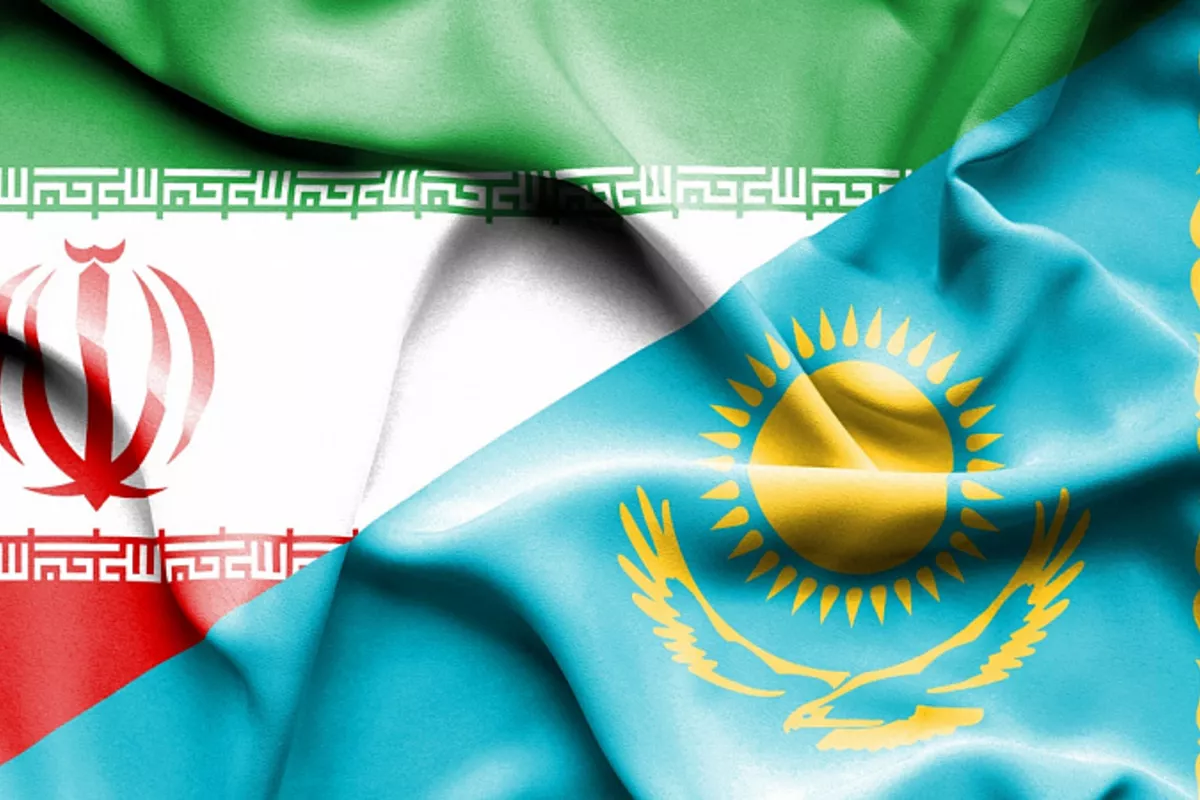
Photo credit: tvbrics.com
Mohammad Khaki, the head of the Khorramabad Chamber of Commerce, Industries, Mines, and Agriculture, met with Ontalap Onalbaiyev, the Ambassador of the Republic of Kazakhstan to Iran.
During the meeting, Khaki called for a significant increase in trade between the two countries, aiming to boost it from the current $340 million to $3 billion, The Caspian Post reports citing Iranian media.
“Kazakhstan is one of the key countries in Central Asia and holds a special position in Iran’s regional economic interactions,” Khaki said.
He added that trade between the two nations stood at $340 million last year but expressed optimism that coordinated efforts could help achieve the $3 billion goal.
Khaki noted that relations between Iran and Kazakhstan have remained positive, stable, and expanding since Kazakhstan’s independence in 1991.
Highlighting the economic potential of Lorestan Province, Khaki said five of Iran’s main export products to Kazakhstan are produced locally in the province. A Kazakh delegation, he added, will visit agricultural, dairy, and construction material production units in Lorestan to explore investment and cooperation opportunities.
Lorestan, home to around 1.8 million people and covering 28,000 square kilometers, lies on a major north-south transit route and possesses significant resources in water, industry, mining, and agriculture.
“With 13 billion cubic meters of water resources - about 11% of Iran’s surface water - Lorestan is well positioned for investment in water-intensive industries,” Khaki said.
The province hosts over 1,300 industrial units, including major petrochemical, pharmaceutical, agricultural, and non-metallic mineral industries. It also ranks among Iran’s top five provinces in decorative stone production, with 200 active stone-cutting facilities.
Khaki pointed out that Lorestan leads the country in black fig production and cold-water fish farming, producing 38,000 tons annually. A National Fisheries Festival is scheduled to take place in November.
He also highlighted the province’s agricultural strengths, with 800,000 hectares of fertile farmland and 100 hectares of advanced greenhouses producing healthy, export-oriented products.
Lorestan benefits from an active airport, customs facilities, north-south transit routes, and a railway line expected to connect to the provincial capital soon. The Khorramabad-Tehran freeway, nearing completion, will cut travel time to the capital to under four hours.
Khaki said the Khorramabad Chamber of Commerce plans to collaborate with the Iran-Kazakhstan Joint Chamber of Commerce to promote exports in petrochemicals, agriculture, and construction materials.
He also announced plans for trade delegations, joint exhibitions, and cooperation agreements, adding that preferential tariffs could further expand bilateral exports. “Iran-Kazakhstan”
Khaki underlined Lorestan’s rich cultural heritage - with over 63,000 years of history and several UNESCO-listed prehistoric sites. The Falak-ol-Aflak Castle, currently undergoing UNESCO registration, is among the attractions the Kazakh delegation will visit.
He added that long-term tax exemptions, National Development Fund loans, and private industrial zones offer strong incentives for foreign investment. “Iran-Kazakhstan”
Ambassador Ontalap Onalbaiyev, on a two-day visit to Lorestan, met with local officials and business leaders and toured several production sites and historical landmarks.
He stated that Tehran and Astana’s relations are rooted in shared historical, cultural, and civilizational ties and that both nations are determined to strengthen their cooperation in economic and cultural spheres.
“Iran and Kazakhstan have no political differences and have consistently supported each other on regional and international issues,” Onalbaiyev said.
According to the ambassador, bilateral trade reached $245 million in the first half of the current year - including $144 million in Kazakh exports and $101 million in Iranian exports. He expressed hope that trade would rise further through the activation of transit routes and joint projects.
Onalbaiyev also revealed that Kazakhstan is considering establishing a logistics hub in Bandar Abbas to expand its trade network with Iran, the Persian Gulf, and Iraq via the North-South Corridor.
He noted that Kazakhstan welcomes Iranian investment and offers incentives such as tax exemptions, investment guarantees, and long-term residence permits for foreign investors. Priority sectors include mining, agriculture, and processing industries, with several joint projects already underway.
“Cultural and academic cooperation should also be a foundation for deeper understanding between our nations,” he added. “As an Iranologist, I believe culture is the cornerstone of nations’ closeness.”
Onalbaiyev praised Lorestan’s hospitality and rich natural and cultural potential, expressing hope that cooperation between the private sectors of both countries will lead to sustainable economic partnerships.
Share on social media